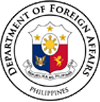Her Betrayal

“For you shall never rule over me,”
Was her claim for betraying me.
She bedded and wed the Enemy;
Kissed him as they beheaded me.
But who was Judas before the kiss?
Or Salome before the dance?
Who is she who trapped me in her bliss,
And killed me when she seized the chance?
She was a low-born and cunning girl.
Descended from a ruined clan.
Ambitious, zealous, wise, beautiful,
She rises for as long she can.
In our prime, the two of us had met,
Were gathered under one decree
Stating she and I were heaven-sent;
This land for us to oversee.
We fought together–she fought for me.
I rewarded her chivalry
With trust, affection, and, most of all,
Love, and I thought she too loved me.
But somewhere in our acquaintanceship,
She had begun to disagree
With my way of rule, my leadership;
A thousand flaws she saw in me.
She told me, as adviser to king,
I should care more for my domain.
But she should know the pain of ruling
And keeping my name clean of stain.
But being low-born, she cared too much
For every little life and soul.
She clung to small things, and thus, as such,
She severed from our common goal.
Caught in this conflict and disarray,
We were found by the Enemy.
He brought the promise of a New World
Achieved by getting rid of me.
Hence, behind my back, my lady had
Conspired to overthrow my reign.
She gave her hand without my command
To him who is to be my Cain.
She counseled me to paranoia;
Drove me into isolation.
She made me doubt my loyal allies.
I lost support of my nation.
When the battles were ought to be fought,
There was no one to fight for me.
Save for her whose guidance I had sought,
Only to know she entrapped me.
“For you shall never rule over me,”
She said when asked why betray me,
“Nor rule this nation which is now free.”
My people were my Enemy.
They kissed her as they beheaded me.
Honestly, writing this poem took much more time than it usually takes me–it took more than TWO DAYS! I initially intended for this to be a short story, but that takes a hell lot more time and I’d probably forget about it like I do with most stories I write.
It was interesting for me to talk about a “betrayal for the greater good” from the point-of-view of the betrayed. I hope you found it as interesting a read as I did in writing it!




